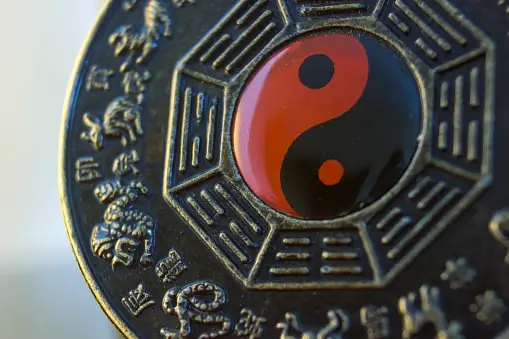Last Updated on March 19, 2022 by QCity Editorial Stuff
Confucianism and Daoism are two of the most influential philosophies in Chinese history. Many people have only heard about them in passing, but do not know what they are actually about. This blog is going to go over the differences between these two schools of thought so that you can have a better understanding of them both.
Confucianism is an ethical philosophy that stresses filial piety, respect for elders, humaneness, justice and sincerity while Daoism is more concerned with nature’s way by living according to wu Wei (doing nothing) or following one’s natural instincts. Confucianists believe that all things need order and discipline while Taoists believe in spontaneity. These are just some general observations on these two concepts.
Daoism and Confucianism are two of the most influential philosophical traditions in Chinese history. In this blog post, we will explore some differences between these two philosophies as well as their similarities.
To start, Daoists believe that chaos is a natural part of life and they reject societal norms. Confucians, on the other hand, view society as an integral part of one’s moral development. As a result, many Confucians prioritize social order over individual freedom concerning government policy-making decisions.
Daoists also have a monistic worldview where everything is interconnected through an underlying unity which makes them more inclined to let things be while Confucians tend to want to fix what is wrong with the world. In other words, Daoism focuses on the potential good that comes from acceptance of others’ flaws while Confucianism looks to improve society through order, discipline and etiquette.
Comparison between Daoism and Confucianism
| Parameters of Comparison | Daoism | Confucianism |
| Philosophy | Daoism is a philosophy | Confucianism is more of a social and political ideology |
| Natural | In Daoism, it means following the natural course of things | In Confucianism, filial piety means honoring one’s parents and ancestors; conversely |
| Believe | Daoists believe in Wu Wei (non-action) | Confucians believe in human effort |
| Concern | Daoists are more concerned about being at one with nature | The goal of life for both philosophies is to be content, but for Confucians, it’s through achieving virtue |
| Agree | Both philosophies agree on the importance of filial piety and respect for elders | Both philosophies agree on the importance of filial piety and respect for elders |
What is Daoism?
Daoism is a Chinese philosophy that can be traced back to the 1st century BCE. The word “Dao” translates to “the way,” and it seeks an understanding of life through balance. Daoists believe in living simply, without extravagance, and in being one with nature. These beliefs are not only for personal enlightenment but also the betterment of society as well.
Daoism is a philosophical and religious tradition that originated in China. It holds the belief that humans should live in harmony with nature, and avoid interfering with natural processes. Daoists believe that because we are part of nature there is a way to be both happy and healthy by living according to our natural rhythms. The practice of Daoism includes rituals, daily meditation, physical exercise such as tai chi, martial arts like qigong or taiji quan, and various types of herbal medicine.
One branch of Daoist philosophy is called alchemy which seeks for immortality through finding the elixir of life – one possible interpretation being an inner transformation rather than an external search for substances or practices. Some other branches include Taostooicism, which stresses harmony with society through respecting others and respecting oneself; and the School of Naturalism, which seeks for an understanding natural connections between all things.

What is Confucianism?
Confucianism is an ancient form of philosophy that has had a profound impact on the cultures and religions in Asia. It is based on the teachings of Confucius (551-479 BCE) who lived during China’s Spring and Autumn period – one of four periods in Chinese history. The other three are the Warring States period, Qin Dynasty, and Han Dynasty.
Confucianism promotes behaviors such as respect for elders, filial piety to parents, loyalty to friends, kindness to strangers, modesty with superiors, honesty with colleagues. These values have been adopted by many Asian cultures including East Asian countries like Korea or Vietnam as well as Southeast Asian countries like Thailand or Indonesia.

10 Differences Between Daoism and Confucianism
1. Daoism is a philosophy, while Confucianism is more of a social and political ideology.
2. The concept of the Mandate of Heaven in Daoism is different from that in Confucianism.
3. In Confucianism, filial piety means honoring one’s parents and ancestors; conversely, in Daoism, it means following the natural course of things.
4. In both philosophies five relationships should be maintained – ruler-subject, father-son, husband-wife, elder brother-younger brother (sister), friend to friend – but they have different meanings for each relationship.
5. There are also differences between how people should interact with others based on their age or gender.
6. For example, an older person will not show up at a younger person’s house without being invited first because it shows disrespect.
7. Daoists believe in Wu Wei (non-action) while Confucians believe in human effort.
8. Confucians believe that Heaven has already predetermined everything, so humans should not interfere with this natural order of things where the hierarchy is determined by social class.
9. The goal of life for both philosophies is to be content, but for Confucians, it’s through achieving virtue whereas Daoists are more concerned about being at one with nature.
10. Both philosophies agree on the importance of filial piety and respect for elders – however, Confucianism also emphasizes the idea of loyalty towards one’s superiors as well as obedience to parents.
Interesting Statistics or Facts of Daoism
1. Daoism has been practiced for over 2,500 years.
2. In China, it is the largest school of thought in terms of both popularity and the total number of practitioners.
3. Daoist temples are called “temples” or “shrines,” not churches.
4. There are three major sects within Daoism- Quanzhen (Complete Reality), Zhengyi (Orthodox Unity), and Lüjiagangxiang (Numinous Treasure).
5. The founder of Quanzhen was Zhang Sanfeng who lived from 1162 to 1227 CE.
6. One sect within Quanzhen is named after a 7th-century nun named Qiu Chuji.
Interesting Statistics or Facts of Confucianism
1. Confucianism is the world’s most practiced philosophy.
2. The word “Confucius” means “Master Kong”, which was his family name.
3. Confucian scholars wear robes with wide sleeves and a square collar to symbolize their respect for tradition.
4. One of the five books in Confucianism is called the Analects, meaning “selected sayings”.
5. In China, some schools focus on teaching children about Confucianism from a young age.
6. There are three levels of understanding in Confucianism – ritual, ethics, and wisdom.
Conclusion
Daoism and Confucianism, two of the most influential schools in ancient China, have a lot of similarities but also some significant differences. For example, both advocate that one should live moderately and not cling to external things like wealth and fame. However, Daoists believe that nature is the best guide for life while Confucians put more emphasis on human beings as their masters who can rule themselves by following moral principles set out by society. In addition, Daoists sometimes seem to be unconcerned with public order or morality while Confucians are very concerned about these topics.
References:
Resource 01: www.britannica.com/topic/Daoism
Resource 02: en.wikipedia.org/wiki/Confucianism






